COVID narrows door to dialysis, options for kidney disease patients
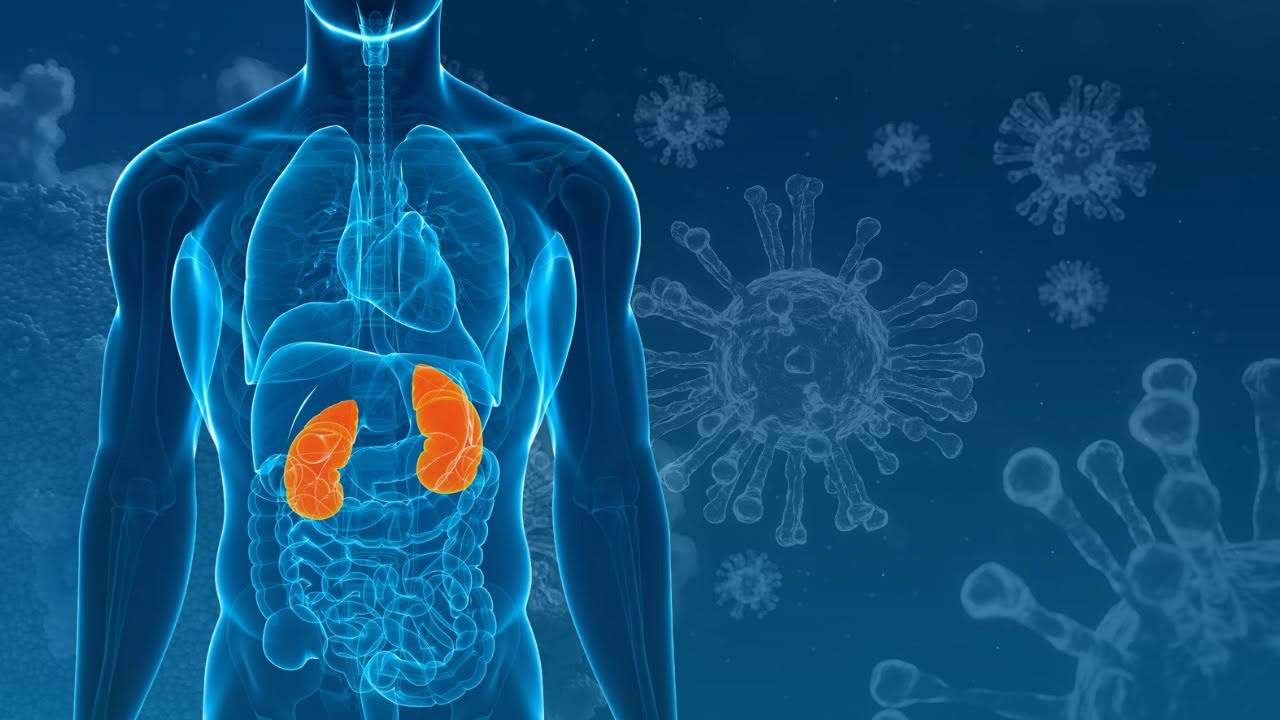
Artwork by Daniella Marie Agacer
MANILA, Philippines—When COVID-19 hit, death moved a step closer to immunocompromised people who were suffering from kidney or end stage kidney disease (ESKD) because the pandemic either blocked or disrupted access to the one treatment they needed most—dialysis.
Dr. Carlo Trinidad, a nephrologist (specialist in kidney diseases), said that while data were lacking, there’s a consensus that there were kidney disease patients whose deaths were because of complications from “missed” dialysis treatments.
He explained in Kidney International Reports’ “Perpetual Lockdown: The State of COVID-19 and Kidney Disease in the Philippines” that the complications often lead to hospitalization or death.
Trinidad said some kidney disease patients were unable to continue dialysis because of lack of dialysis centers dedicated to kidney disease sufferers who also had COVID. Two other aggravating circumstances were loss of income as a result of COVID infection and the lack of health workers handling cases of kidney patients who are with COVID, too.
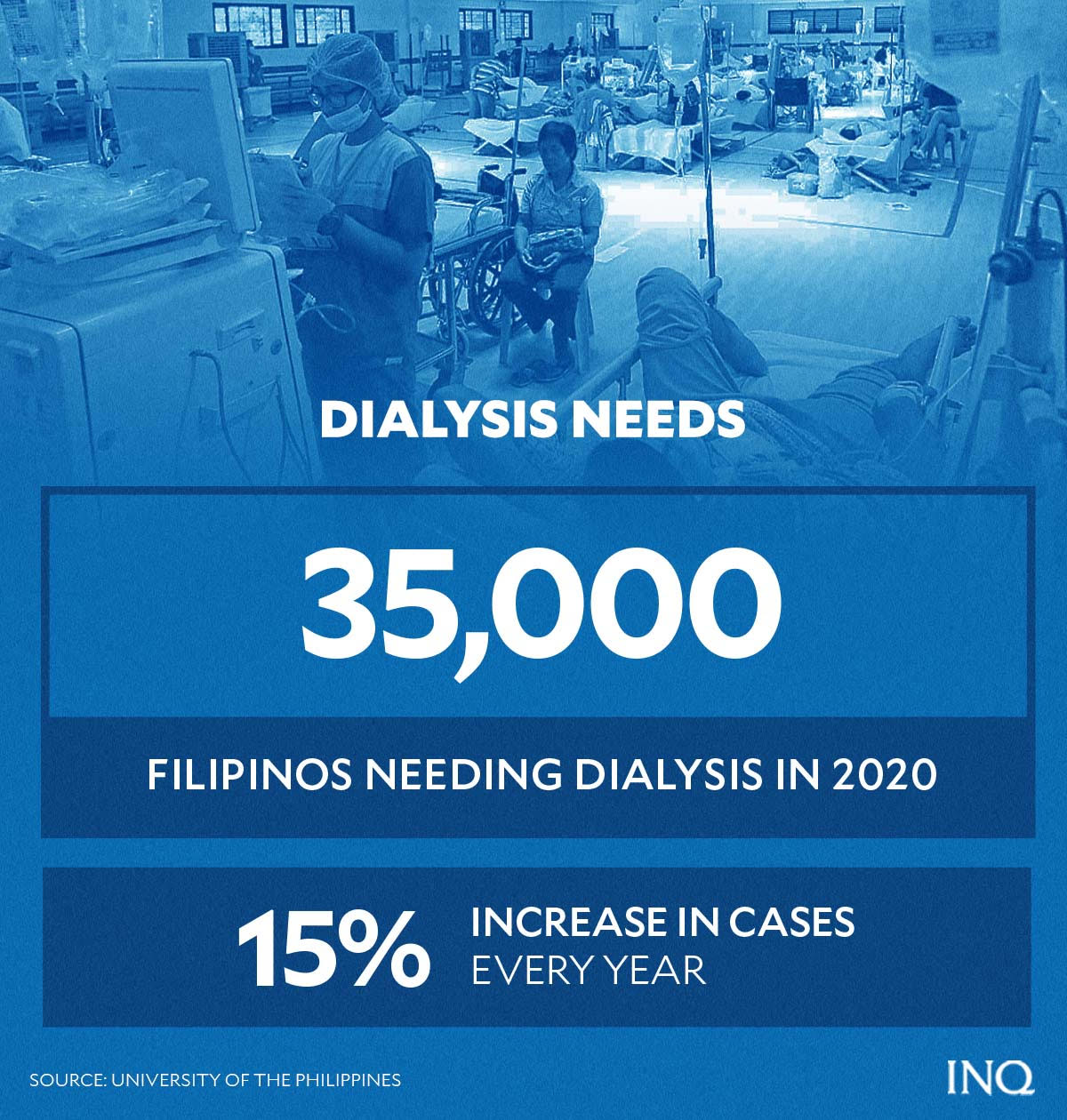
Graphic: Ed Lustan
In 2021, this was what Rosita Gaspi, an elderly in Isabela province undergoing dialysis, had to go through. On March 30, 2021, she contracted COVID. Her dialysis schedule was disrupted because she had to isolate according to COVID protocol. She died on April 7, 2021.
Article continues after this advertisementHealth Secretary Francisco Duque III said the department has been receiving complaints that dialysis centers had refused to provide service to individuals with kidney diseases and COVID-19.
Article continues after this advertisementREAD: Dialysis centers told to serve clients with COVID-19
“We pity these patients. It can’t be that [the dialysis centers] would turn their backs on them just because they have COVID-19,” he said, explaining that there were ways to prevent infection while giving dialysis treatments.
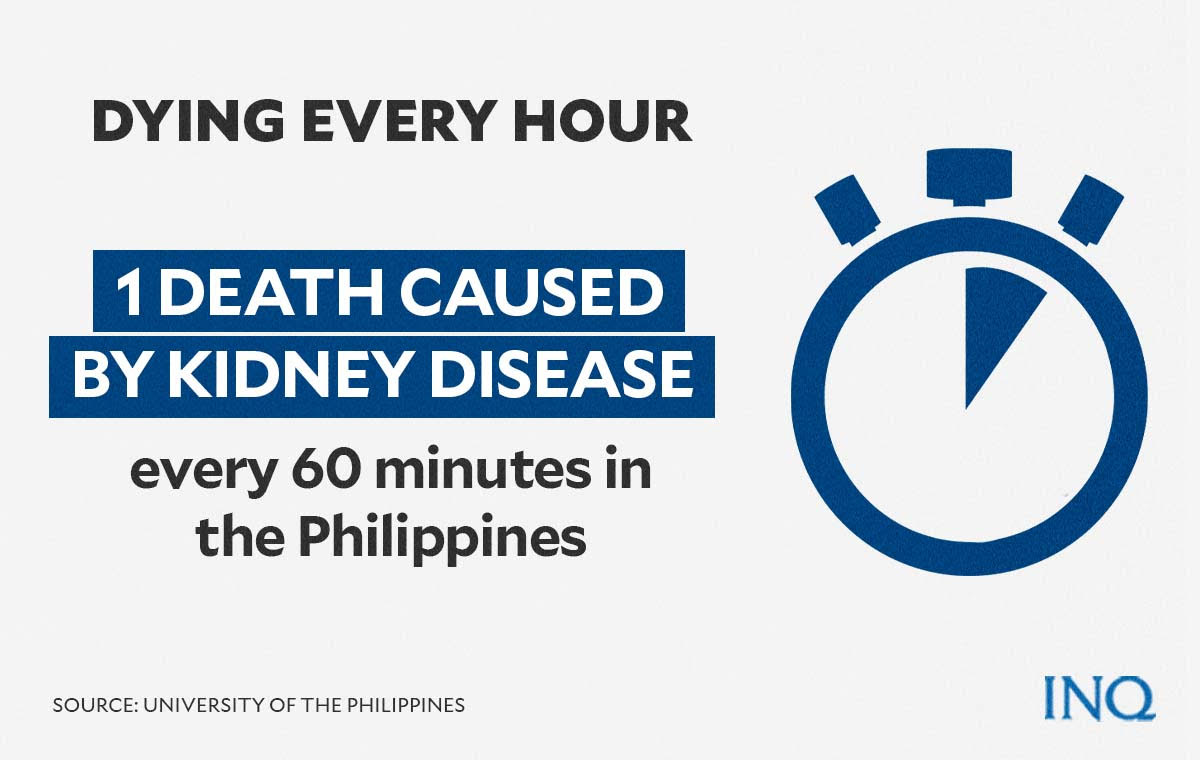
Graphic: Ed Lustan
The University of the Philippines, in 2020, said there are close to 35,000 Filipinos who are going through dialysis and over the last decade, new cases have increased by 15 percent every year.
COVID hardships
A list prepared by the Philippine Society of Nephrology (PSN) showed that there are 92 dialysis centers in the Philippines, but UP said the COVID-19 crisis “threw free-standing hemodialysis centers into a tailspin.”
UP said many of these had to close because patients and health workers had been taken ill by COVID and hospital-based dialysis clinics had to reduce the number of patients they could accommodate.
“The National Kidney and Transplant Institute (NKTI) became the only place to go to for hundreds of patients who could not avail of dialysis, and it soon found itself overflowing with patients,” UP said.
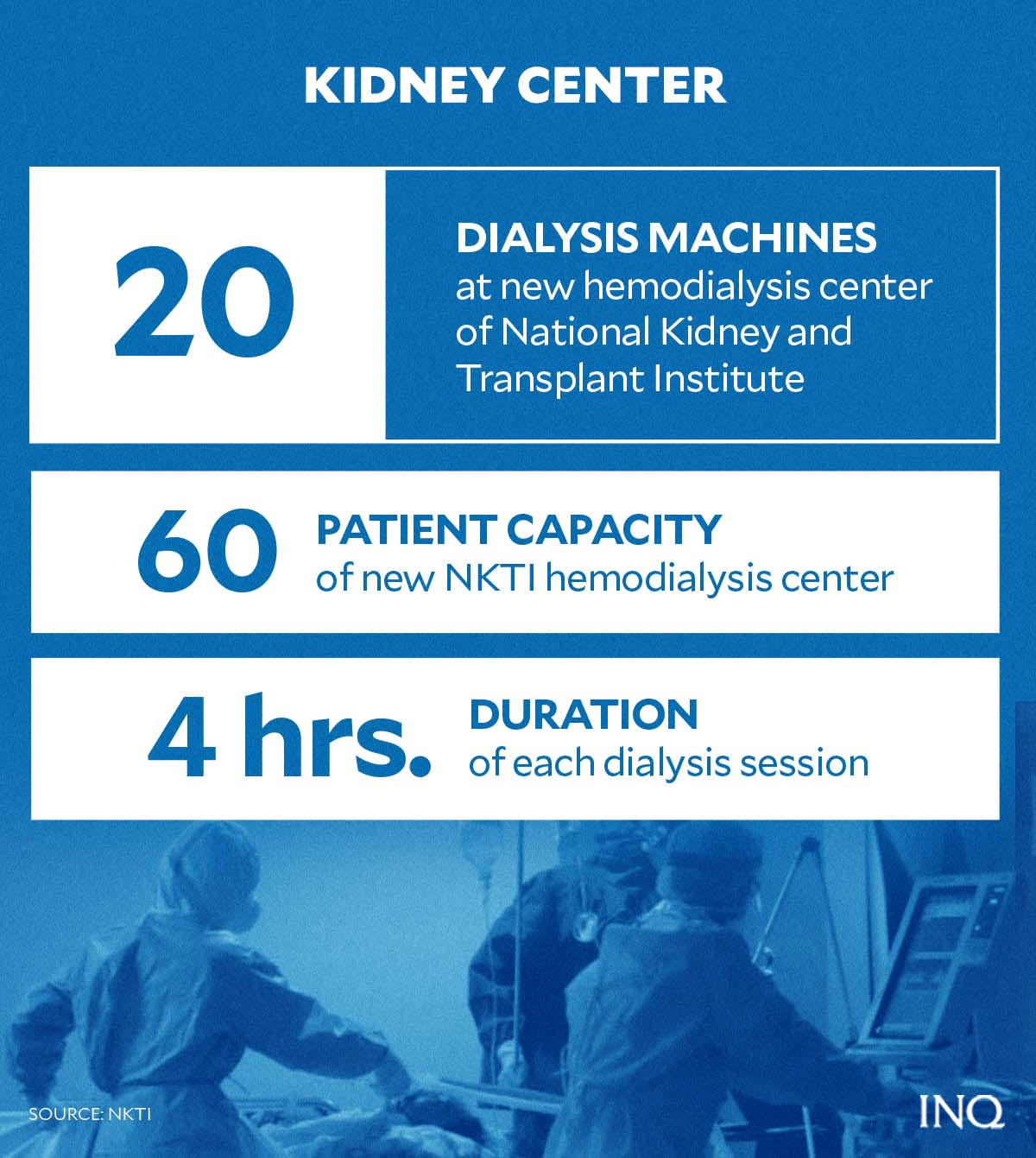
Graphic: Ed Lustan
Last year, the NKTI opened a new hemodialysis center that is exclusive to kidney disease patients with COVID-19. Dr. Rose Marie Rosete-Liquete said this was a way to prevent COVID transmission in hospitals.
READ: NKTI opens dialysis facility for COVID-19 patients
With 20 machines, however, the new center could serve only 60 patients per day because a dialysis session often takes four hours and machines need to be decontaminated after every session.
Trinidad said that when COVID hit, dialysis centers were unprepared to handle the rise in COVID cases because free-standing centers were ill-equipped to handle confirmed and probable COVID-19 patients.
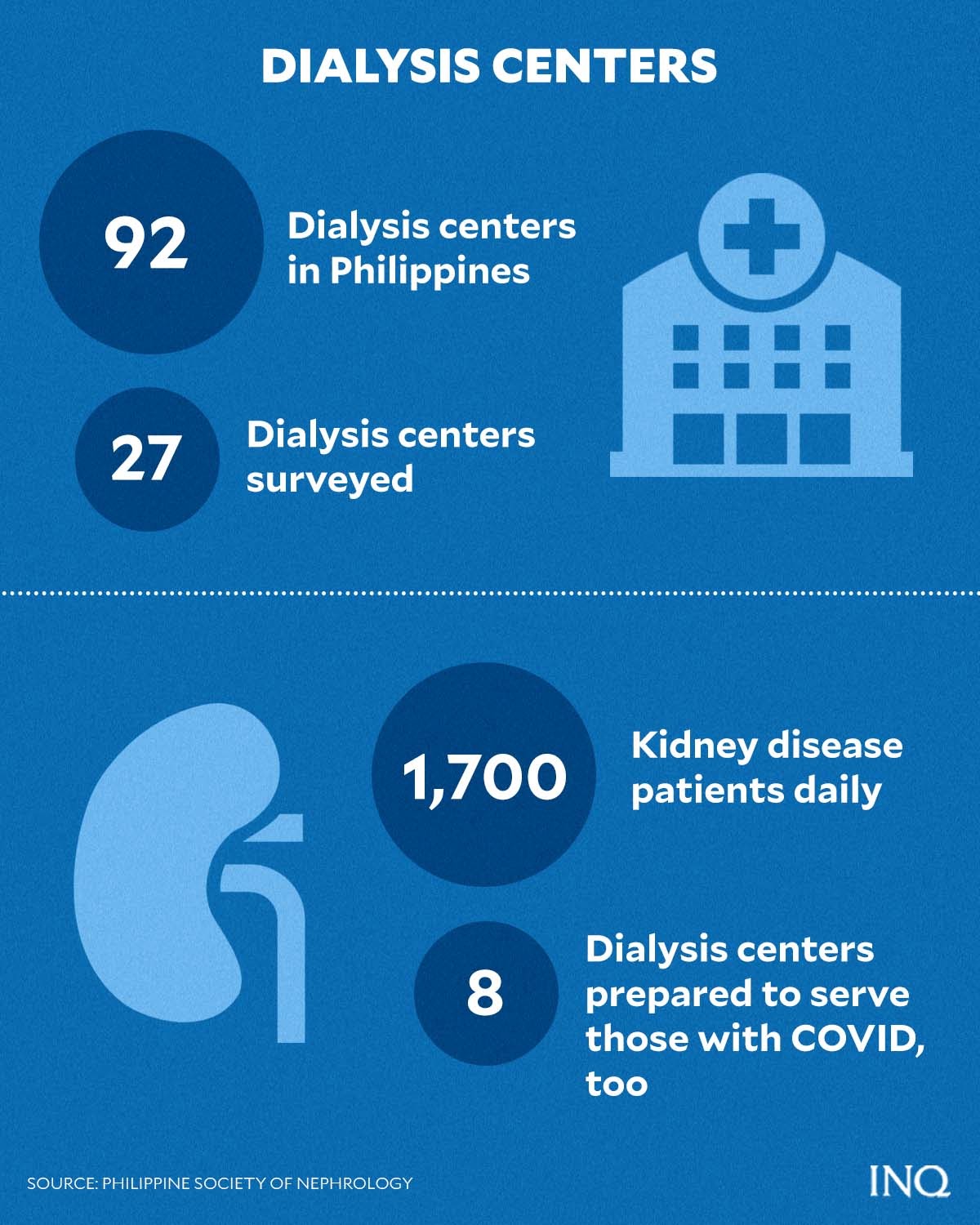
Graphic: Ed Lustan
In a research by PSN, out of 27 dialysis centers in the Philippines which were serving 1,700 kidney disease patients daily, only eight were prepared to handle COVID-19 patients.
While there were clinics that were able to get through the first days of the COVID crisis, these only had a capacity of 27 COVID-19 patients in a day. As a result, symptomatic patients had been asked to transfer to other centers.
PSN and local government units initiated efforts to designate dialysis clinics dedicated for COVID-19 patients, but these were soon overwhelmed by the rise in COVID-19 cases.
Need to take them in
A 2020 research by Isabelle Tomacruz et. al. involving 68 ESKD patients with COVID-19 in a hospital in Metro Manila showed that mortality was high at 25 percent.
It said intensive care unit admission was likewise needed for 17.7 percent of 68 ESKD patients with COVID-19 who are covered by the study. In 2020, UP said one Filipino dies from kidney disease every 60 minutes.
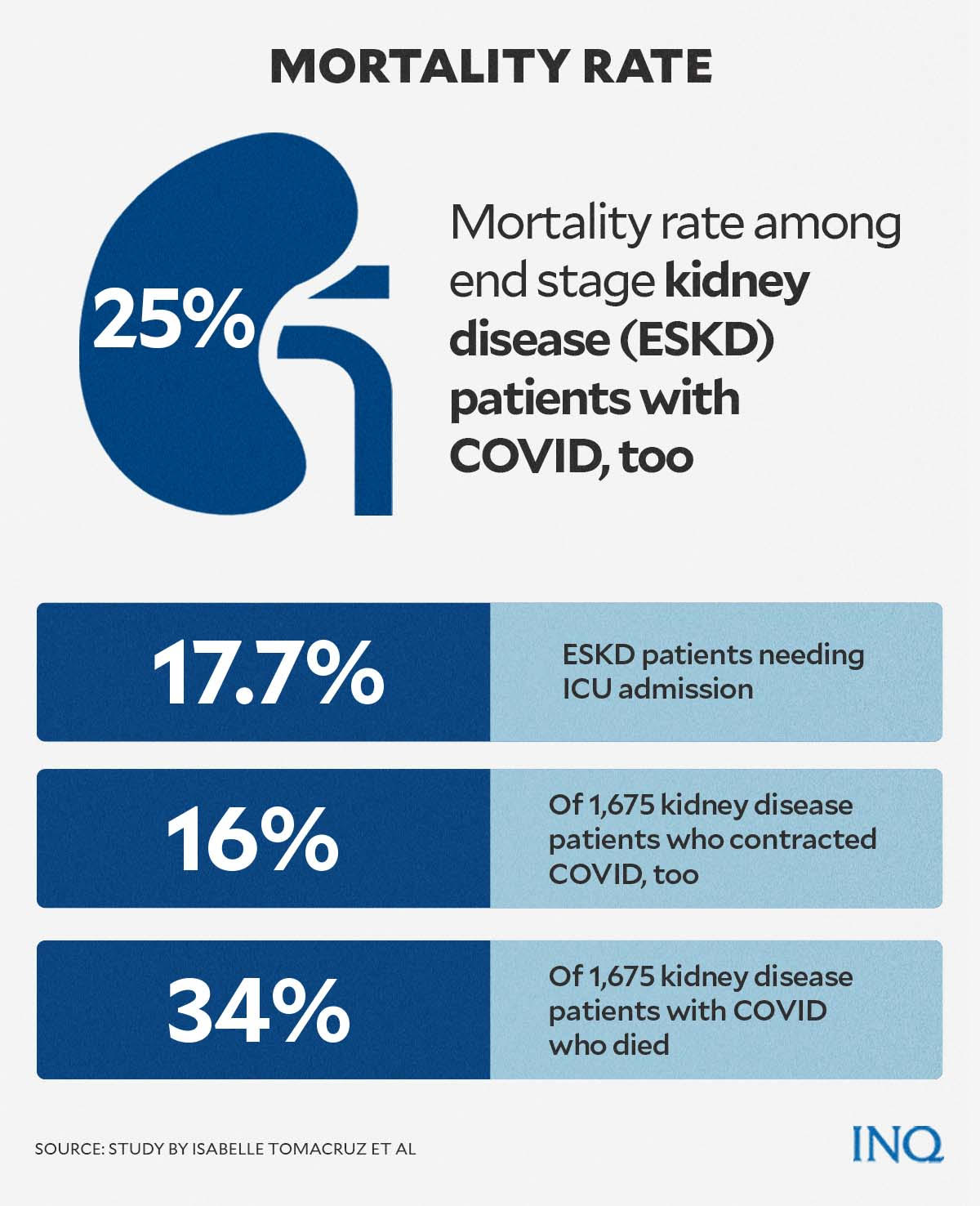
Graphic: Ed Lustan
This was the reason kidney disease patients need places where they can get dialysis safely, especially when they also have COVID-19, because receiving dialysis in the time of the pandemic was clearly tough.
Trinidad said symptomatic patients had to pay for COVID tests, as well as the expenses for the dialysis which cover PPE and hazard pay of health workers in private institutions.
In 2019, physician and Manila vice mayor Honey Lacuna said dialysis costs P2,200 per session while prices may go as high as P5,000 per session in private hospitals.
RELATED STORY: House panel passes bill to make various types of dialysis free for senior citizens
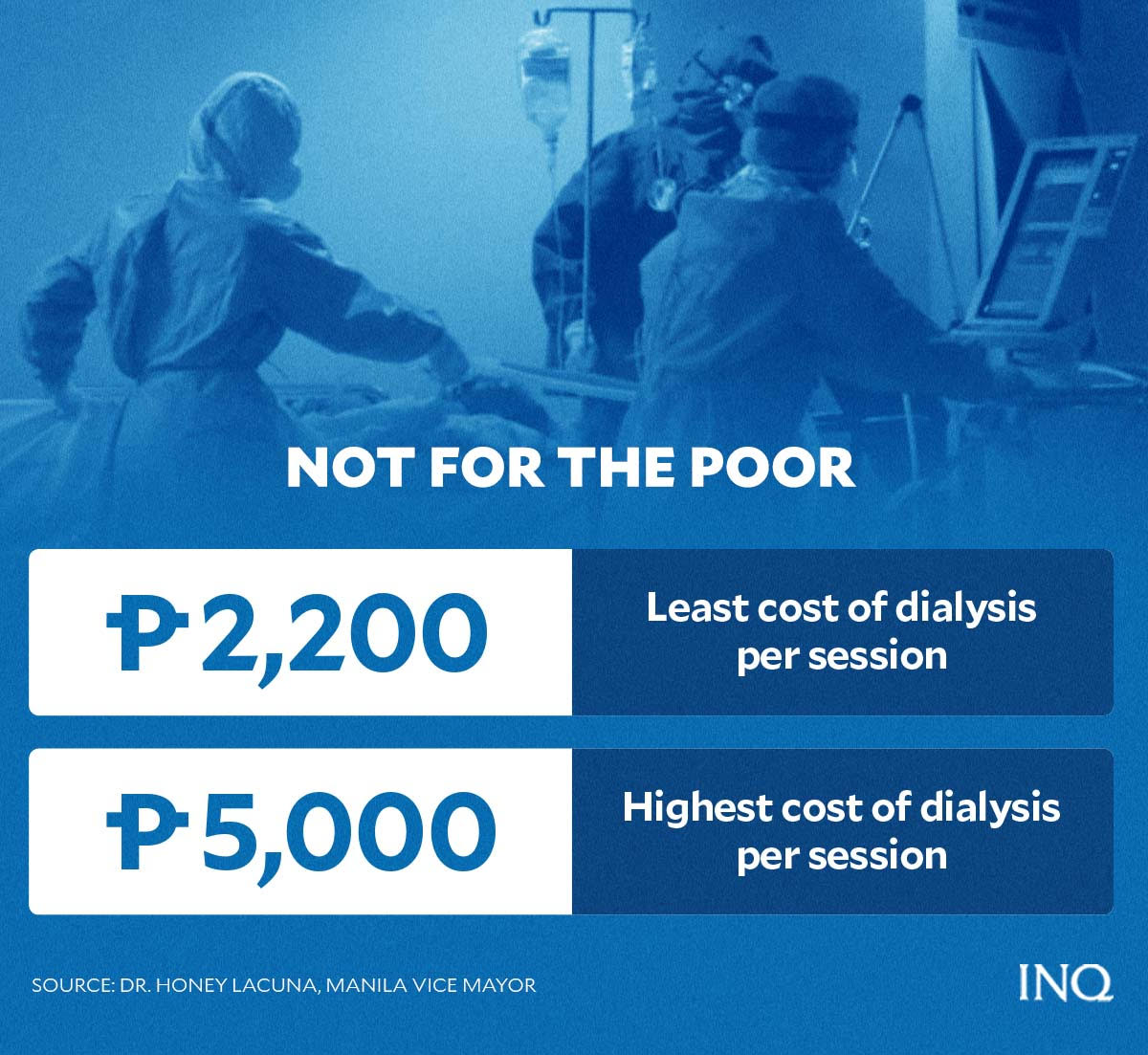
Graphic: Ed Lustan
Trinidad said patients, who did not have finances to pay for these fees, had to try getting dialysis in government clinics “already filled to the brim with patients.”
The research made by Tomacruz et. al. revealed that 267—or 16 percent—of 1,675 kidney patients who were covered by the study developed COVID-19. Out of these, 91 or 34 percent died because of COVID.
RELATED STORY: PhilHealth expands dialysis coverage to 144 sessions
TSB
For more news about the novel coronavirus click here.
What you need to know about Coronavirus.
For more information on COVID-19, call the DOH Hotline: (02) 86517800 local 1149/1150.
The Inquirer Foundation supports our healthcare frontliners and is still accepting cash donations to be deposited at Banco de Oro (BDO) current account #007960018860 or donate through PayMaya using this link.